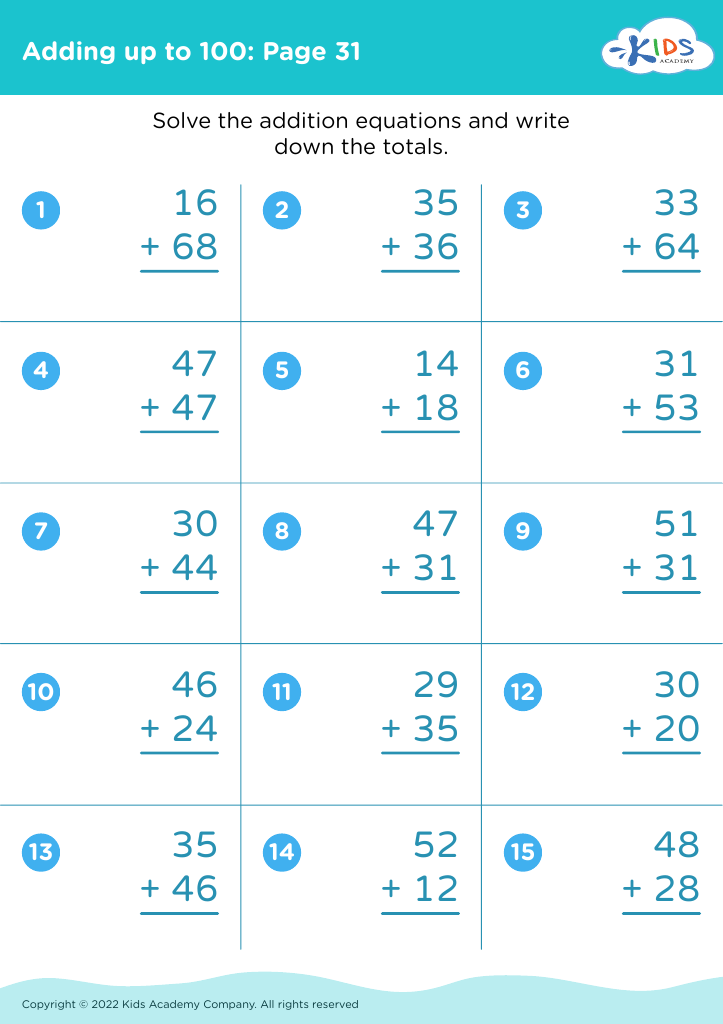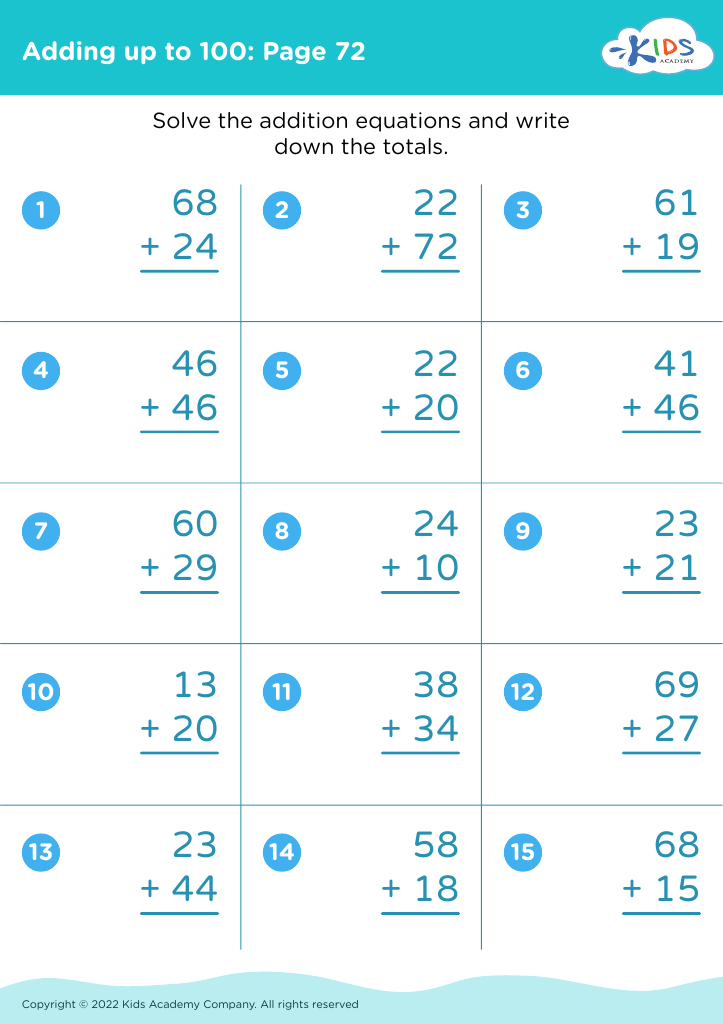Develop number recognition Adding up to 100 Worksheets for Ages 4-8
4 filtered results
-
From - To
Enhance your child's math skills with our "Develop Number Recognition: Adding Up to 100 Worksheets" designed specifically for ages 4-8. These engaging and interactive worksheets help young learners master number recognition while building a strong foundation in basic addition. With vibrant illustrations and age-appropriate exercises, kids will enjoy exploring numbers through fun practice that reinforces their mathematical understanding. Perfect for at-home practice or classroom use, our worksheets provide a comprehensive resource for parents and educators alike. Foster confidence in number recognition and arithmetic while encouraging a love for learning in your little ones! Access the worksheets and start the fun today!
Developing number recognition and the ability to add up to 100 is crucial for children aged 4-8 as it sets a strong foundation for their future mathematical understanding and problem-solving skills. This early stage of learning number sense helps children interpret and analyze numerical information, which is essential in a multitude of everyday situations.
Number recognition, which involves identifying and understanding the significance of numerals, enhances cognitive skills and boosts confidence. When children can recognize numbers quickly, they are better prepared to tackle more complex mathematical concepts later on. For instance, being able to add up to 100 encourages logical thinking and instills a sense of accomplishment in young learners.
Additionally, classroom discussions, games, and activities centered on number recognition foster social interaction and cooperative learning among students. This cultivates a positive attitude towards math, making it an engaging and enjoyable subject rather than a source of anxiety.
Lastly, active involvement in these learning milestones empowers parents and teachers to monitor progress and tailor support to individual learning needs. By focusing on building strong number recognition skills, educators and parents can help children thrive academically and develop essential life skills that will serve them well into adulthood.







%20(1).jpg)










